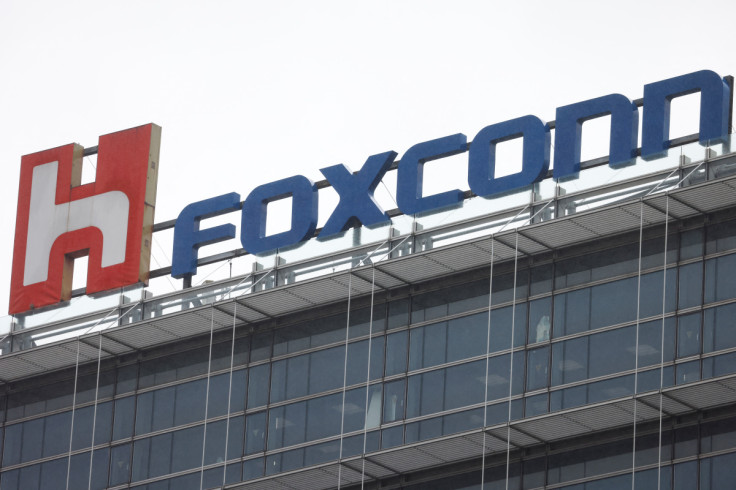Indian Minister Says Foxconn's Pullout From Chip Deal 'Changes Nothing' About India's Ambitions

KEY POINTS
- Apple supplier Foxconn withdrew from its $19.5 billion joint venture with Indian conglomerate Vedanta
- The companies had signed deals last year to set up semiconductor and display production plants in Gujarat
- An Indian minister said that the withdrawal 'changes nothing about India's Semicon goals'
India's dream of becoming a major global hub in semiconductor manufacturing hit a roadblock after Taiwan-based company Foxconn pulled the plug on its multibillion-dollar joint venture with Indian conglomerate Vedanta. But an Indian minister in charge of a key ministry said the pullout "changes nothing" about India's ambitious program, a key component of Prime Minister Narendra Modi's "Make in India" initiative.
The company is "working to remove the Foxconn name from what now is a fully-owned entity of Vedanta," said a statement from Foxconn, known for being Apple's largest supplier.
"Foxconn has no connection to the entity and efforts to keep its original name will cause confusion for future stakeholders," the statement added.
Vedanta, a Mumbai-based mining giant, signed agreements with the iPhone maker in September 2022 to invest $19.5 billion to set up semiconductor and display production plants in the Indian state of Gujarat.
Indian Prime Minister Narendra Modi had called the multibillion-dollar plan "an important step" to boost India's chip-making ambitions, including attracting foreign companies to set up shop in the country to manufacture semiconductors.
However, the Vedanta-Foxconn joint venture (JV) was "struggling" to "tie up with a technology partner," Rajeev Chandrasekhar, India's Union Minister of State for Entrepreneurship, Skill Development, Electronics & Technology, told Reuters in May.
The Indian government had also denied the Foxconn-Vedanta venture's application seeking billions of dollars to make 28-nanometer chips. The JV was told that they would not be provided government assistance because they did not meet the set criteria.
Following Foxconn's pull-out from its JV with Vedanta, Chandrasekhar said this "changes nothing about India's semicon goals. Not a thing."
Foxconn did not mention a reason for the withdrawal. But some believe the Apple supplier was never the right fit in the first place for the JV because both companies lacked prior experience and technology in chip-making.
"As an Indian business lead for a proposed chip fab project, what Vedanta needed from the very beginning was a technology provider/partner which is a high-volume manufacturer of Silicon-based chips (ICs) for the technologies that Vedanta is looking to apply for incentives - whether it is 28nm or 40/45nm or even 65nm or 90nm, it needs a production-grade technology license to qualify. Foxconn doesn't have it and so was never an ideal partner for the JV," Arun Mampazhy, a semiconductor analyst, told International Business Times.
" ... In fact, I am surprised that the JV went on for about 18 months," Mampazhy said. He also believes the withdrawal is not a major blow to India's microchip manufacturing ambitions.
Talks about the Foxconn-Vedanta venture making deals with the reputed STMicroelectronics were ongoing before news of the Apple supplier's withdrawal broke out.
If Vedanta can lock in a strong enough deal with a company like STMicroelectronics, then they still have a chance at getting approved for government incentives, Mampazhy said.
"If Vedanta's claim that they have a 40nm production grade license from a reputed fab - rumored to be STMicroelectronics- then they still stand a chance to be approved for incentives," Mampazhy told IBT. "In addition to vetting the license, the project cost quoted by Vedanta and the equity structure with the technology provider (and any new business partners) will have to be okayed by a government review committee."
© Copyright IBTimes 2025. All rights reserved.




















